The Human Flies - [4]
Olesen’s neighbour on the second floor was an American by the name of Darrell Williams whom the caretaker’s wife believed to be in his early forties. He had been living there for no longer than eight months, and the rent was paid by the American Embassy. The caretaker’s wife had never actually asked what he did at the embassy, but thought that he held a senior position – she described Williams as someone who was ‘always well dressed and no doubt important’. He also spoke very good Norwegian after only a few weeks. Darrell Williams went to work first thing in the morning and often came back late in the evening, but never brought home guests.
Miss Sara Sundqvist lived in the flat below Olesen. She was a young Swedish student who had been there since the start of the academic year in August, and had surprised the caretaker’s wife with flowers and chocolates when she moved in. Sara Sundqvist was well dressed and elegant. At times she perhaps seemed distant, but always smiled and greeted her. Miss Sundqvist took her studies very seriously and lived a rather regulated life. She usually left between eight and nine in the morning and came home between three and five in the afternoon. During the first few months, one or more of her fellow students had sometimes come to visit. They always behaved impeccably and left well before eleven.
Sara Sundqvist had clearly charmed the caretaker’s wife, and yet there was something about her face that led me to believe that she was hiding something. A rather stiff expression that remained when she went on to talk about the young husband and wife, Kristian and Karen Lund, who lived in the flat to the left on the first floor. They were a friendly and helpful couple who seemed so very much in love, even after the birth of their first child. The Lunds had moved in two years ago as newly-weds and now had a son who was just over one. Mrs Lund was twenty-five years old and the daughter of a factory owner from one of the most desirable parts of Oslo. Her husband was a couple of years older and was the manager of a sports shop in Hammersborg.
A taxi driver lived in the flat to the left on the ground floor. Konrad Jensen was in his fifties and was not married. The caretaker’s wife had heard from one of her nephews, who was also a taxi driver, that Konrad Jensen drove one of the oldest taxis in Oslo but still managed to negotiate the city’s many confusing side streets more quickly than most of his colleagues. Konrad Jensen worked hard and often long hours. Otherwise, he only went out to the odd sports event. As far as the caretaker’s wife could remember, he had never received any visitors in the twenty years that he had lived there.
The caretaker’s wife opened and closed her mouth a couple of times after she had spoken about Konrad Jensen. Again, something unsaid was left hanging in the air. I had no idea what, but for the moment there was no need to push the caretaker’s wife any further on it.
The final resident lived in the ground-floor flat to the right and was a wheelchair-bound man by the name of Andreas Gullestad. He was around forty years old and, as far as the caretaker’s wife could understand, was a rentier who lived on his inheritance. This must have been fairly substantial as he was always elegantly dressed and lived an apparently carefree life, with the exception of his physical handicap. Despite his difficulties, he was always in good humour and friendly to anyone he met. He had moved here from the better side of town three years ago, after the building had been done up. As a result of an accident shortly before that time, he was now dependent on a wheelchair, so was happy to find an easily accessible flat on the ground floor. Gullestad was the only person, apart from Harald Olesen, who had accepted the property owner’s offer to buy the flat.
Andreas Gullestad’s sister and niece sometimes came to visit, but otherwise he lived a quiet and perhaps rather lonely life. He sometimes ventured out onto the street in summer when the weather was good, but in winter preferred to stay indoors and often asked the caretaker’s wife to do his weekly shopping. He paid her generously for this and always presented her and her husband with gifts at Christmas and on their birthdays. As far as the caretaker’s wife could understand, Gullestad was unable to move around without a wheelchair, but he still seemed to have use of his upper body and arms. And there was certainly nothing wrong with his head: he was an exceptionally intelligent and knowledgeable man.
Fortuitously, the caretaker’s wife had not only been sitting at her post all afternoon and evening on the day of the murder, but had also made note of the residents’ comings and goings. Harald Olesen had himself been out to the shops in the morning, but had come back around midday and then stayed at home for the final ten hours of his life. No one had phoned him. The only registered phone calls of any interest from the weeks before his death were several calls to and from his lawyer at the firm Running, R0nning & R0nning.
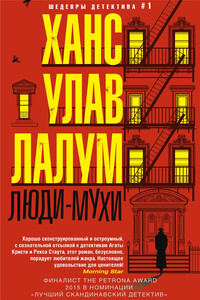
Убит бывший лидер норвежского Сопротивления и бывший член кабинета министров Харальд Олесен. Его тело обнаружено в запертой квартире, следов взлома нет, орудие убийства отсутствует. На звук выстрела к двери Олесена сбежались все соседи, но никого не увидели. Инспектор уголовного розыска Колбьёрн Кристиансен считает, что убийство, скорее всего, совершил кто-то из них. Более того, он полагает, что их показания лживы.
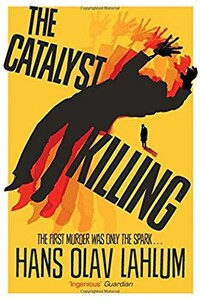
The third mystery in the hugely compelling, bestselling international crime series from Norway's answer to Agatha Christie, Hans Olav Lahlum, The Catalyst Killing will have you guessing to the final clue. The first murder was only the spark… 1970: Inspector Kolbjorn Kristiansen, known as K2, witnesses a young woman desperately trying to board a train only to have the doors close before her face. The next time he sees her, she is dead… As K2 investigates, with the help of his precocious young assistant Patricia, he discovers that the story behind Marie Morgenstierne's murder really began two years ago, when a group of politically active young people set out on a walking tour in the mountains.
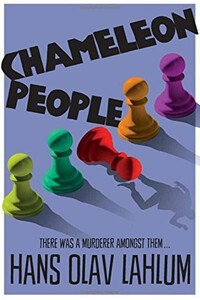
From the international bestselling author, Hans Olav Lahlum, comes Chameleon People, the fourth murder mystery in the K2 and Patricia series.1972. On a cold March morning the weekend peace is broken when a frantic young cyclist rings on Inspector Kolbjorn 'K2' Kristiansen's doorbell, desperate to speak to the detective.Compelled to help, K2 lets the boy inside, only to discover that he is being pursued by K2's colleagues in the Oslo police. A bloody knife is quickly found in the young man's pocket: a knife that matches the stab wounds of a politician murdered just a few streets away.The evidence seems clear-cut, and the arrest couldn't be easier.
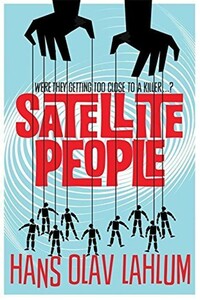
A gripping, evocative, and ingenious mystery which pays homage to Agatha Christie, Satellite People is the second Norwegian mystery in Hans Olav Lahlum's series. Oslo, 1969: When a wealthy man collapses and dies during a dinner party, Norwegian Police Inspector Kolbjorn Kristiansen, known as K2, is left shaken. For the victim, Magdalon Schelderup, a multimillionaire businessman and former resistance fighter, had contacted him only the day before, fearing for his life. It soon becomes clear that every one of Schelderup's 10 dinner guests is a suspect in the case.
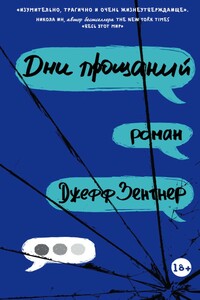
«Вы где, ребята? Ответьте». Это последнее сообщение, которое семнадцатилетний Карвер Бриггс отправил своим лучшим друзьям Марсу, Эли и Блейку. Он не мог даже предположить, что из-за невинного смс его друзья погибнут. Теперь Карвер винит себя в автокатастрофе. И не он один – семьи его погибших друзей твердо намерены призвать Карвера к ответу. В попытке справиться с горем Карвер устраивает «дни прощаний» с Марсом, Эли и Блейком, по кусочкам собирая воспоминания о своих друзьях и самого себя – заново…
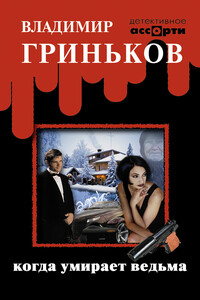
Новый роман Владимира Гринькова «Когда умирает ведьма» увлекает необычным колдовским сюжетом. Однако мистики в нем не больше, чем в жизни самых обычных людей. Девушка, которая делает все возможное и невозможное, чтобы получить высокооплачиваемую работу, частный детектив, богатый бизнесмен, журналист, специализирующийся на скандальной хронике, деревенская бабка-знахарка — судьбы героев причудливо переплетаются с тем, чтобы сложиться в единственную и неповторимую картину, предопределенную загадочной Судьбой.
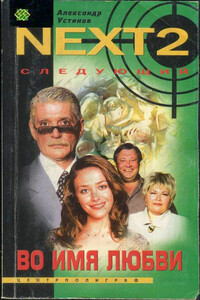
Книга написана по сценарию известного российского драматурга А.В. Тимма.Шайка Ангелины Виннер продолжает борьбу. Им удается похитить Ольгу Кирсанову, жену убитого хозяина «Империи». Сын Ольги Ваня ради спасения матери отказывается от своих прав на фирму. Враждебный лагерь празднует победу, но… преждевременно! В руках у Лавра козырная карта — завещание, и, обнародовав его, он ломает планы своих врагов. Остановятся ли бандиты, или кто-то снова окажется их следующей жертвой?
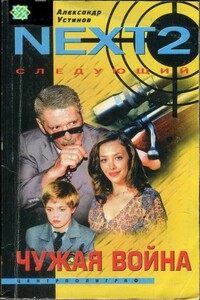
Книга написана по сценарию известного российского драматурга А.В. Тимма.Франц Хартман и Ангелина Виннер, подстроившие автокатастрофу, в которой погиб хозяин «Империи» Владимир Кирсанов, намерены идти до конца. Теперь они замышляют убийство его жены Ольги и несовершеннолетнего сына Вани, наследника «трона». Волею случая Лавру суждено сыграть роль доброго ангела в судьбе женщины и ребенка.
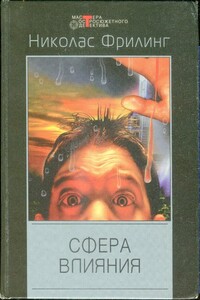
Обстоятельный и дотошный инспектор амстердамской полиции Ван дер Вальк расследует странное убийство домохозяйки («Ать-два!»). Героям известного автора детективов предстоят жестокие испытания, прежде чем справедливость восторжествует.
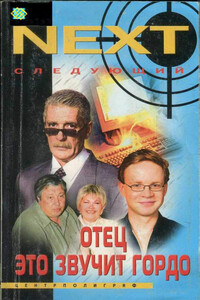
Книга написана по сценарию известного российского драматурга А.В. Тимма. На страницах романа вы встретитесь со старыми знакомыми, полюбившимися вам по сериалу «NEXT», — благородным и великодушным Лавром, его сыном Федором, добродушным весельчаком Санчо и решительной Клавдией. Увлекательное повествование вводит в мир героев, полный настоящих рыцарских подвигов и романтических приключений.